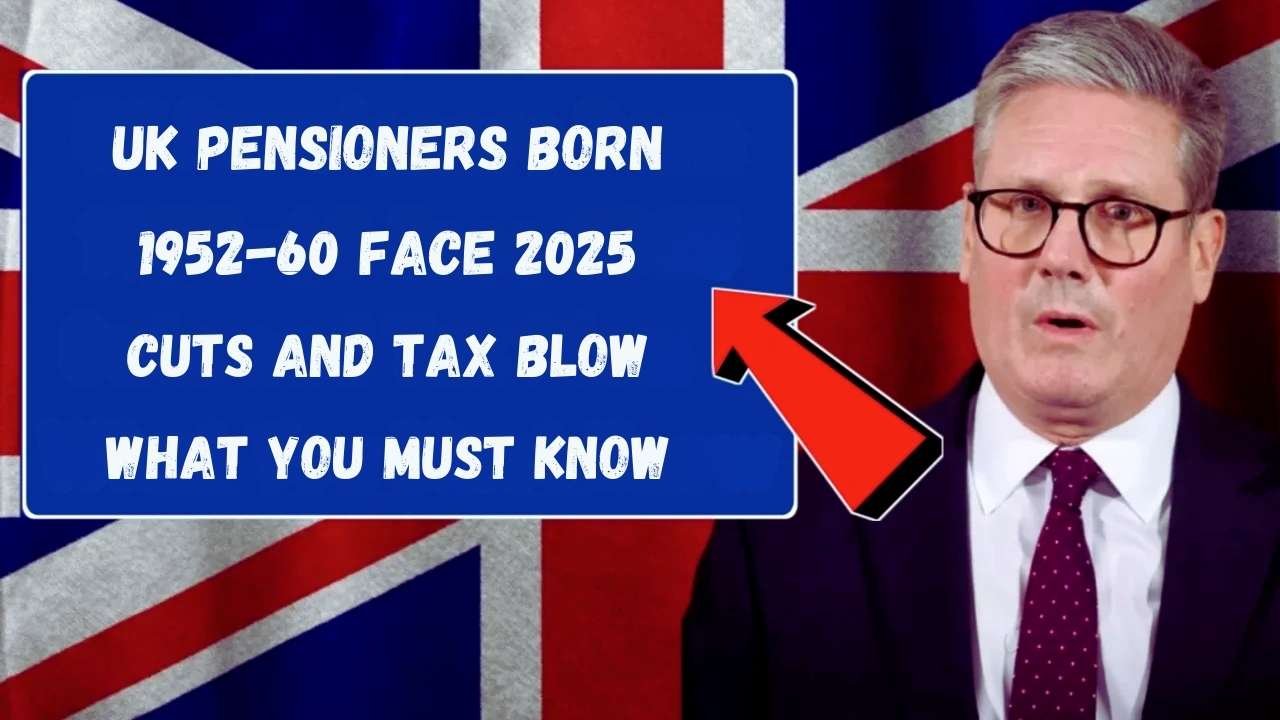Millions of UK pensioners born between 1952 and 1960 are in for a tough time in 2025. New changes mean their state pension might be smaller than expected, and they could face bigger tax bills. This double hit comes from old pension rules being tweaked and tax thresholds staying frozen while pensions rise. It’s left many feeling frustrated and short-changed. Here’s what’s happening and what you can do about it.
Why Pensions Are Getting Squeezed
Back in the day, from 1978 to 2016, many workers paid less National Insurance to join workplace pension schemes instead of the state’s extra pension, called SERPS. This is known as being “contracted-out.” Now, the Department for Work and Pensions (DWP) is making stricter calculations for these years, cutting state pensions for some by £10 to £20 a week. For someone expecting £230.25 a week, that could drop to around £210, which adds up to a big loss over a year.
Tax Bills Creeping Up
The personal tax allowance, the amount you can earn before paying tax, has been stuck at £12,570 since 2021 and won’t budge until at least 2028. Meanwhile, the state pension keeps going up thanks to the triple lock, which ties it to inflation, wages, or 2.5%, whichever is highest. In April 2025, the full new state pension will hit £230.25 a week, or £11,973 a year. That’s dangerously close to the tax threshold, so even a bit of extra income, like from a private pension, could mean a tax bill of over £1,700 a year.
| Income Source | Annual Amount | Taxable After Allowance |
|---|---|---|
| New State Pension | £11,973 | £403 |
| State + £9,192 Private | £21,165 | £8,595 |
Who’s Hit Hardest?
Pensioners born between 1952 and 1955 are likely to see bigger pension cuts because they spent more years in contracted-out schemes. Those born from 1956 to 1960 will feel the tax pinch more, as their rising pensions push them over the frozen tax threshold. If you’ve got both issues, it’s a proper double whammy. Around 8.7 million pensioners are expected to pay income tax in 2025/26, up by 420,000 from last year.
Can You Still Find These Pennies?
Believe it or not, some of these valuable pennies could still be out there in circulation. They were made over 100 years ago, but because they’re still legal tender, they might turn up in change from shops, bank rolls, or old piggy banks. Experts think a few thousand 1914-D pennies are still around, though most are likely in private collections. Every now and then, stories pop up about someone finding a rare coin worth thousands in a random place, like a family heirloom box. So, it’s worth checking those dusty coin jars.
What Can You Do About It?
There are ways to soften the blow:
- Check your state pension forecast on the GOV.UK website to spot any gaps or deductions in your National Insurance record.
- Consider topping up your National Insurance with voluntary Class 3 contributions to boost your pension if you have missing years.
- Talk to a tax advisor about ways to lower your tax bill, like splitting income with a spouse or using tax-free ISAs.
- Look into Pension Credit if your income is low; it can top up your money and unlock extras like help with council tax.
Is Help on the Way?
Pensioner groups are pushing the government to raise the tax-free allowance or rethink how contracted-out deductions are calculated, but nothing’s confirmed for 2025. Keep an eye on the Autumn Budget or Spring Statement for any updates. For now, staying informed and acting early is your best bet to protect your income. These changes are tough, but with a bit of planning, you can make your retirement funds stretch further.
